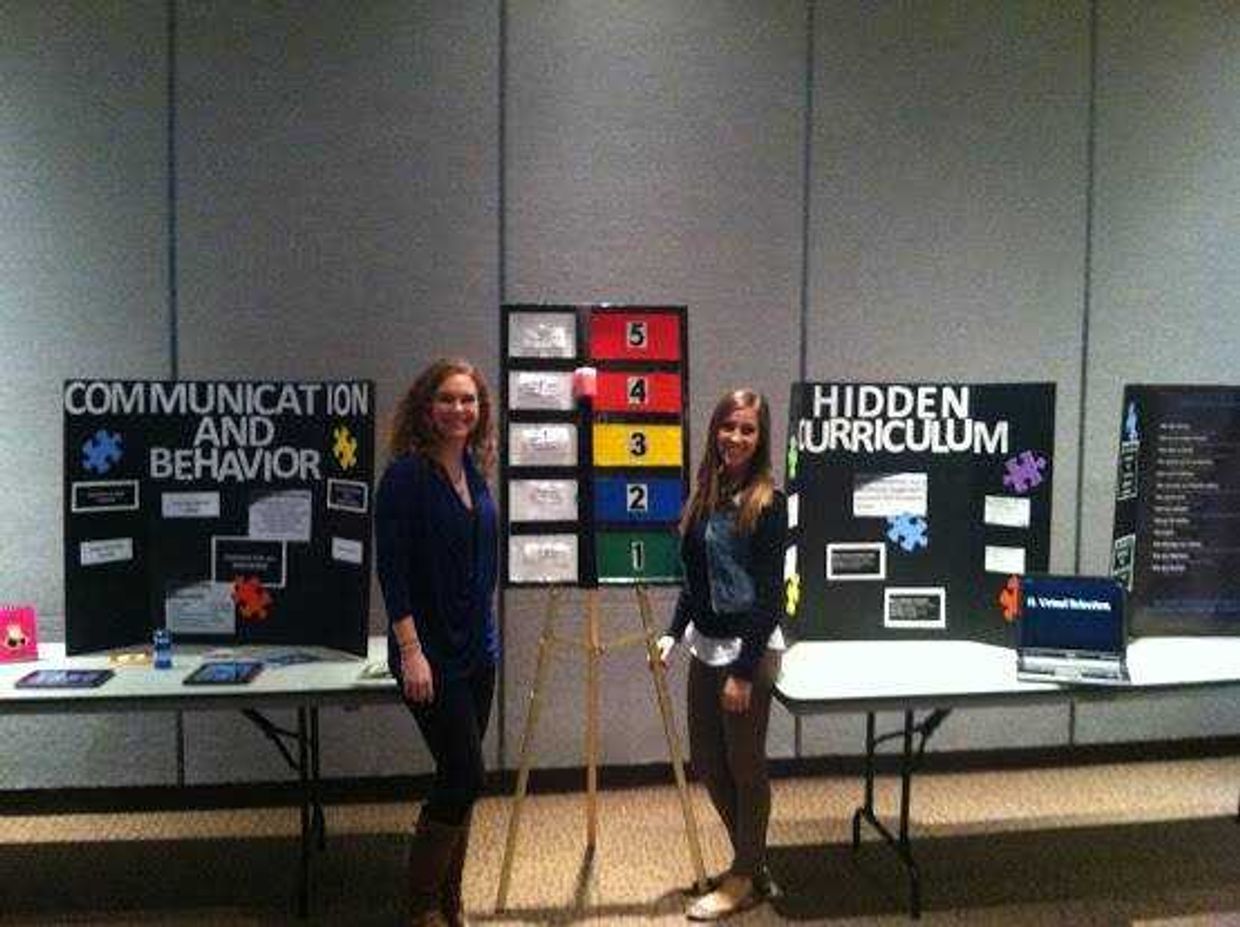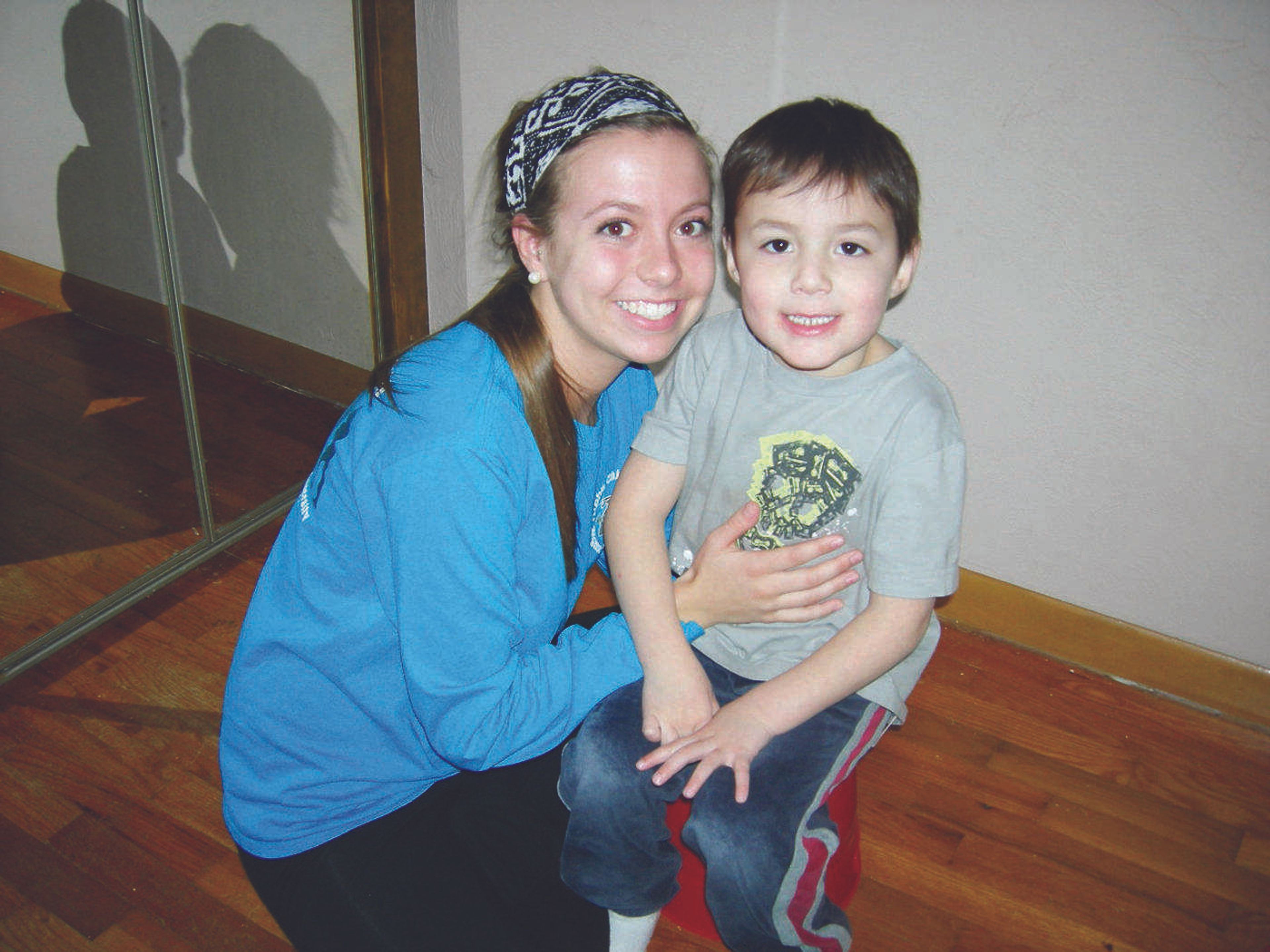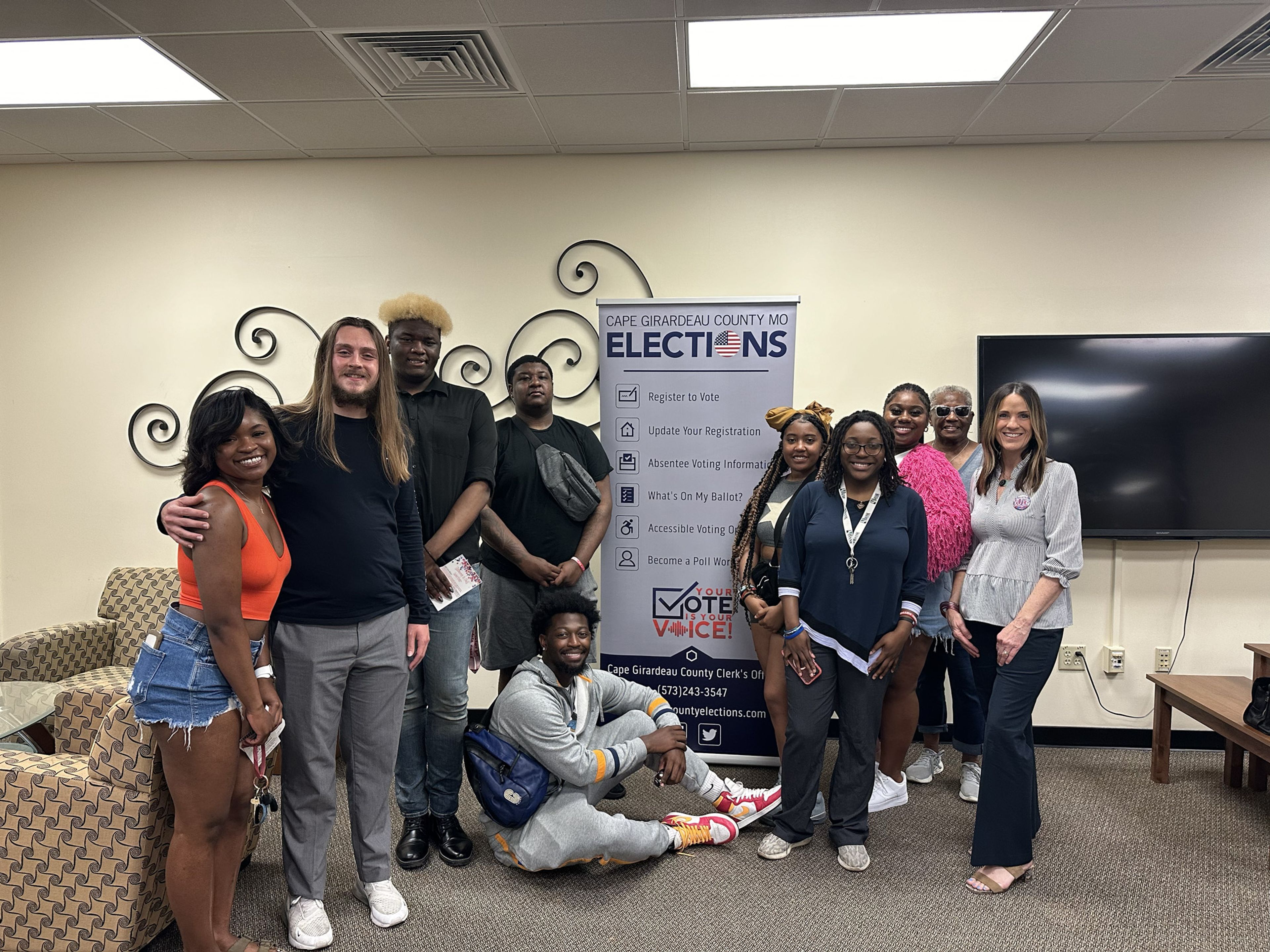Founders of the on-campus organization Assist with Autism and Southeast Missouri State University students Sarah Derkos and Jamie Norrenberns are two out of the 10 students who volunteer to visit the Shrimplin household on a daily basis. The 10 students split up the week into two-hour shifts where they work with, play and teach Alejandro Shrimplin, a 4-year-old child with autism.
When Alejandro was diagnosed with autism in October 2013, his family did not know anything about the disorder. Alejandro's mother, Carmen Shrimplin, attended training for parents with children with autism in Massachusetts after the diagnosis in hopes of learning more about autism and having questions answered.
"When I went to the training they gave me hope and they were very optimistic. I got a lot of encouragement because I met a lot of parents," Carmen Shrimplin said. "I got healing for myself when I was there."
Shrimplin was also taught how to acquire good volunteers at the training. After returning to Cape Girardeau, she knew she wanted volunteers from Southeast.

"Carmen reached out to a whole bunch of people who work at the university and I found out she needed help through my adviser," Derkos said. "She gave us the opportunity and that's when we called Carmen, and we met up with her to get things going."
While working their two-hour shifts each week, the students use a treatment called the Son-Rise Program. It is a method of treatment designed to help caregivers enable the children to improve in all aspects of life. The program places emphasis on joining in and mimicking the actions of the child and providing a non-judgmental atmosphere. In the play therapy room, the students must be excited and expressive at all times to keep his attention.
"You have to be so goofy, and you look like a mess sometimes because you're just trying to keep them engaged and work on eye contact. So you're really crazy and you're really loud," Derkos said. "It's a lot of energy and a lot of bouncing around."
The Son-Rise Program is effective because the child is forced to engage, interact and build relationships with people. The students have been working with Alejandro using the program for the past eight weeks.
"It's so amazing how much he has progressed," Norrenberns said. "He is such an affectionate little boy, making it so easy to work with him."
Despite how much the students may enjoy working with him, communicating and getting through to Alejandro can also be challenging. Alejandro is non-verbal, he has difficulties expressing what he wants and the students often do not understand what they need to do to meet his needs.
"You've pushed yourself, so when a little boy is sitting next to you, and he can't express if he's happy or sad or mad, it's really hard," Derkos said.
The Son-Rise program also has a Facebook group where Shrimplin is able to connect with parents in similar situations from all around the world to share stories and get her questions answered.
Shrimplin learned that autistic tendencies can be improved with a change of diet. Since last April, Alejandro has been put on a gluten free and casein free diet.
"He's got some days where he is very hyper, but I attribute that to a lot of the foods that he eats. So definitely a good diet has helped tremendously," Shrimplin said.
With the knowledge and help she acquired through her resources, Shrimplin has been able to provide the best situation possible for her son, and the volunteers from Southeast have helped her in more ways than she could ever imagine.
"The students have been an answer to prayer," Shrimplin said. "I just feel very, very blessed, and I thank God for each and every single girl that comes in here every day to help."





